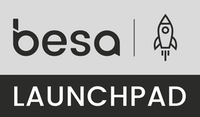Are relationships and sex education lessons getting better?

Over several decades, there have been many individuals and organisations calling for and working to support better relationships and sex education. Since September 2020, state schools in England have had a statutory requirement to deliver relationships and health education in primary school and relationships, as well as sex and health education in secondary schools. Of course, this all came into being amid the COVID pandemic and the resulting school closures, meaning schools needed to be better placed to implement the new guidance as they juggled remote learning, illness and everything else that came with the pandemic.
Fast forward a few years to 2023; this relatively new guidance is under review. As I write, this is still the case, leaving schools in a ‘limbo’ situation, wondering what they should be delivering when it comes to relationships and sex education and at what age content should be introduced to pupils.
However, the positive news is that evidence is emerging suggesting that relationships and sex education lessons are getting better. The sex education forum (SEF) recently released the results of their annual young people’s poll, and 50% reported their RSE at school as ‘good’ or ‘very good’. This is the best result since polling began. 61% of young people agreed that ‘RSE taught me useful skills for consent in relationships. Other areas are reported less positively, particularly so-called ‘taboo’ topics. You can read the full report here.
Chameleon PDE listens carefully to young people’s voices, and our partner schools regularly complete our ‘How Are You?’ student voice survey. So, what does our data set of almost 11,000 responses tell us?
Although there’s room for improvement, and in line with SEF findings, ‘taboo’ topics stand out as needing additional support, we are certainly seeing an improving picture.
Chameleon PDE’s survey data regularly paints a more positive picture of young people’s behaviour, attitudes and choices across many areas of PSHE, and this is in all likelihood due to the commitment of the schools we work with to provide excellent quality PSHE.
I’m in the privileged position of being able to consult with teachers regularly, students and other experts in the fields of education and public health and regularly adapt and add new resources and training to support teachers feel confident and very firmly in the driving seat when developing and delivering their PSHE curriculum.
The results from our survey are a testament to the evidence-based approach our partner schools take to help ensure their PSHE programme meets the needs of as many young people as possible in their settings.
If you want to find out more about how Chameleon Pde can help your school provide an evidence-based PSHE programme and support your staff with our award-winning ‘wrap-around’ support, get in touch at info@chameleonpde.com, we’d love to hear from you!




